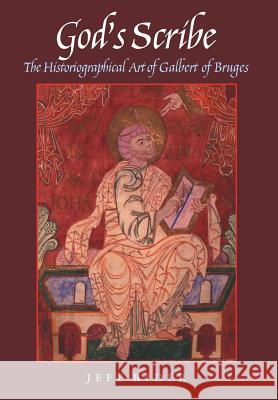God's Scribe the Histographical Art of Galbert of Bruges » książka
God's Scribe the Histographical Art of Galbert of Bruges
ISBN-13: 9780813210186 / Angielski / Twarda / 2001 / 360 str.
Galbert of Bruges's De multro, traditione, et occisione gloriosi Karoli comitis Flandriarum (The Murder of Charles the Good) has been studied extensively over the last hundred years. Considered one of the most important and original works of medieval historiography, the De multro is an eyewitness account of the assassination of Charles the Good, Count of Flanders, in 1127 and of the ensuing civil war. It is written in the form of a journal, the only work of its kind from Europe in the twelfth century, and provides a continuous, detailed account of events in Flanders from March 1127 to July 1128. Scholars have long considered the De multro to be a true journal, written hastily as events unfolded and never revised. In God's Scribe, the first book devoted to Galbert and his chronicle, Jeff Rider challenges that view. He argues that the De multro is not the transparent and objective testimony it has been taken to be; rather it is a complex and sophisticated work of astonishing originality that is an outstanding example of medieval historical writing. Intended as a companion volume to the De multro, the book provides an outline of the Flemish crisis of 1127-28 and summarizes what is known about Galbert. It traces the elaboration of the De multro from a set of wax notes to a nearly completed chronicle. Rider studies Galbert's sources, the way he took and organized his notes, the distinct stages in which the chronicle was written, its literary qualities, and the conceptual tools he used to comprehend the events he related in it. Rider concludes that Galbert's efforts to understand an extended series of events in light of the theology of history and authority common in his day, and to apply that theology to the practice of historical writing, made the De multro one of the most intellectual and experimental histories of its time, while its style, form, and viewpoint made it one of the most popular ones.











